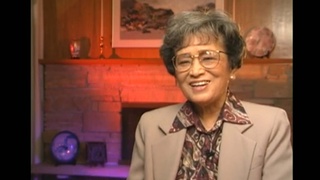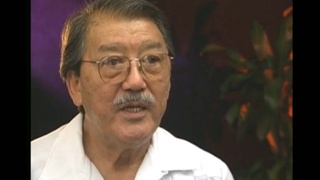Interviews
Denied redress as a Japanese Peruvian
I got a letter from Office of Redress saying that I was denied because I wasn't a citizen or a permanent resident at the time of internment. So then I appealed it. I appealed and then they came back saying that I didn't get my permanent residency until 1956. So I was denied again. And then there was another one that said that I went to Canada voluntarily. Now, I mean, the immigration office said the only way I can get my permanent residency is by leaving the country and re-enter. So, how can that be voluntarily? Just like when I got classified illegal alien. How can I be illegal when we didn't want to come here in the first place and the government brings us, brings us here, force us, force us to come here, and they bring us at gunpoint, and then they classify -- and not only that, there were, some of the Peruvians were businessmen, so some people had passports. And those passports were confiscated when we boarded the ship. And then when we come, when we got off the ship they said we didn't have any papers so we were illegal.
Date: October 26, 2003
Location: Washington, US
Interviewer: Alice Ito
Contributed by: Denshō: The Japanese American Legacy Project.






